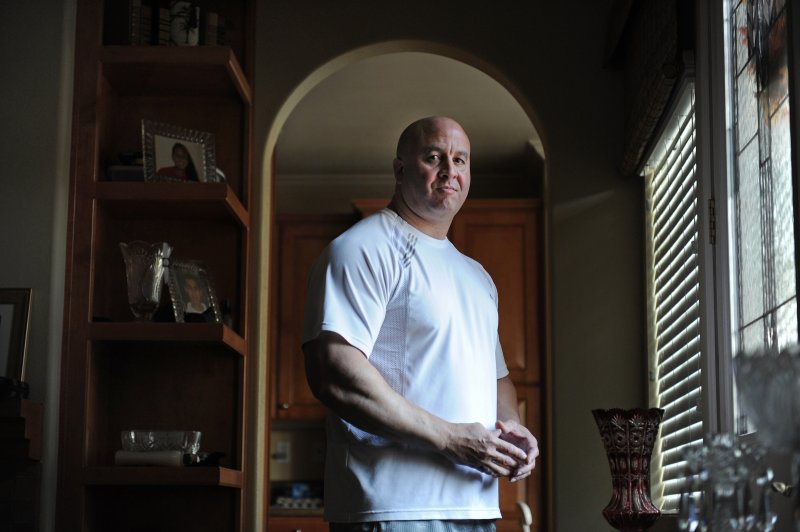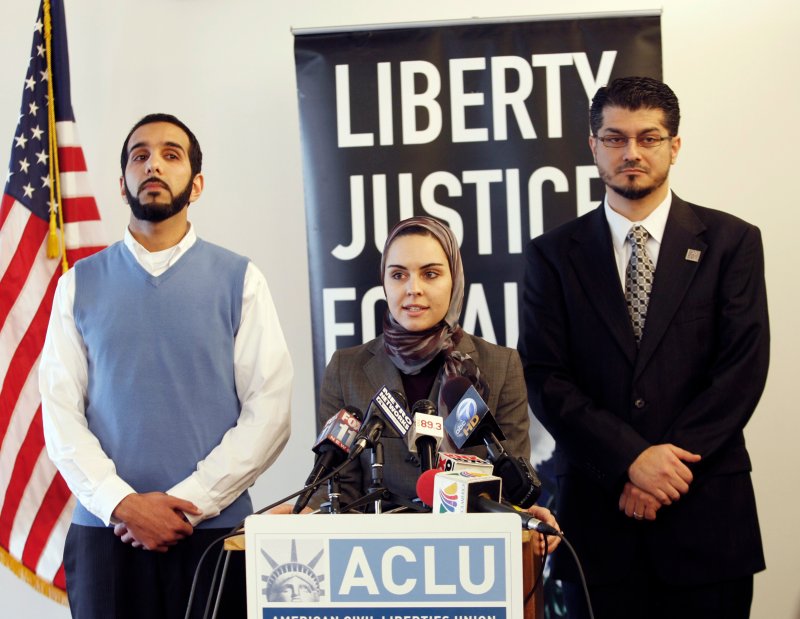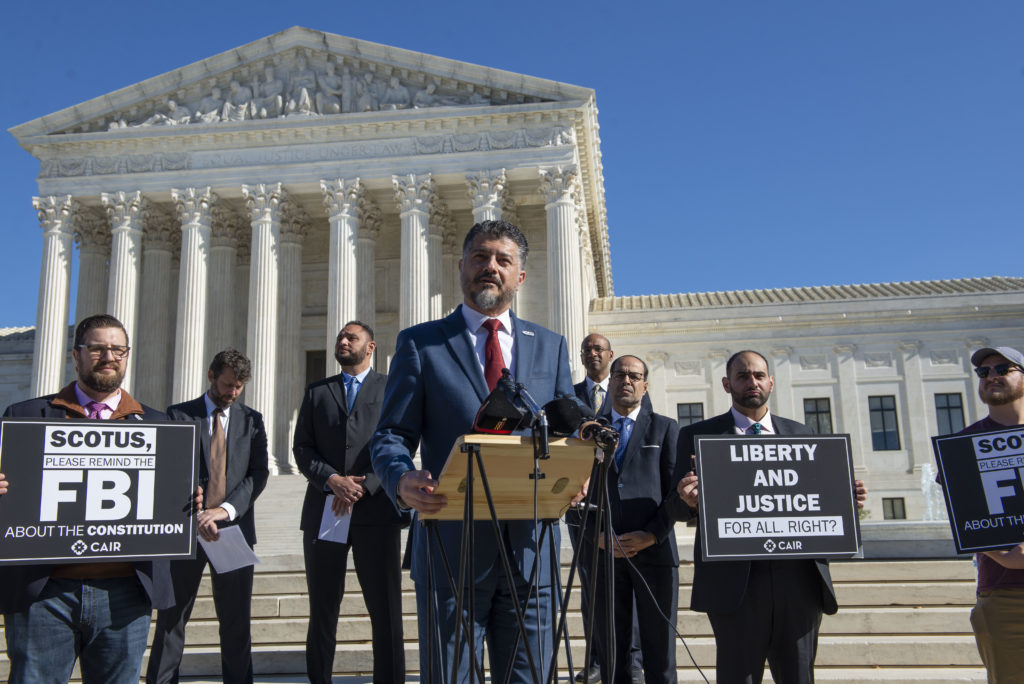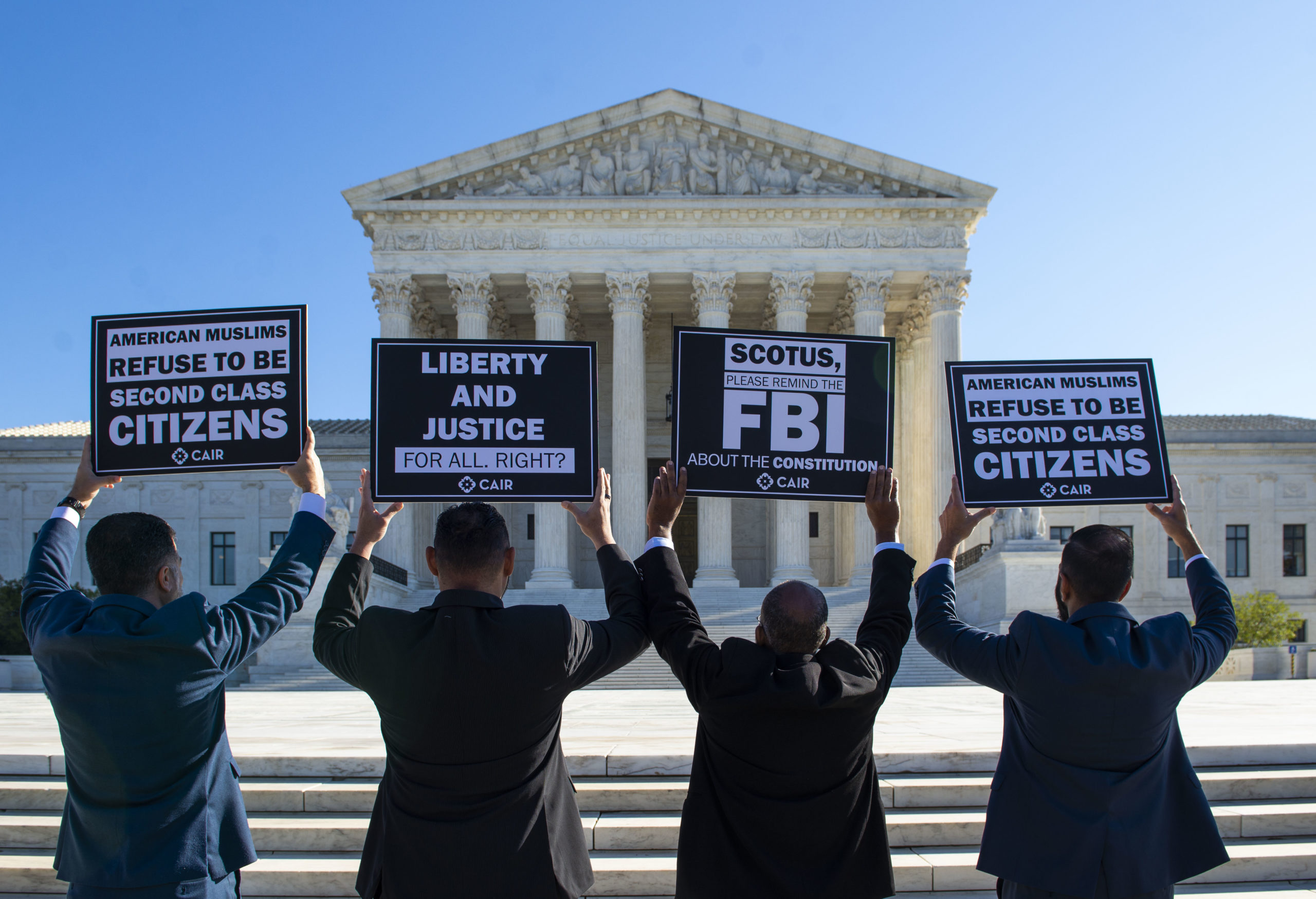What Is FBI v. Fazaga About?
In June 2006, Los Angeles FBI Assistant Director Stephen Tidwell attended a forum for the Muslim community at the Islamic Center of Irvine (ICOI), where he promised the community that the FBI would not send informants into mosques for the purpose of monitoring the Muslim community. Despite this promise, the FBI had already hired Craig Monteilh to become a paid informant to spy on the Muslim community.
From 2006–2007, the FBI paid Monteilh to covertly gather information about Muslims in Orange County as part of an unlawful spying operation called “Operation Flex.” The explicit purpose of Operation Flex was to gather information on people who practice Islam in Southern California.
FBI agents explicitly told Monteilh that he needed to survey Muslims because Islam was a threat to America’s national security.

Around July 2006, Monteilh faked a public conversion to Islam at ICOI. Over a 14-month period, Monteilh collected personal information on hundreds of innocent Muslim Americans across several mosques in Southern California. The FBI gathered hundreds of phone numbers, thousands of emails, background information on hundreds of individuals, hundreds of hours of video recording that captured interiors of mosques, homes, businesses, and the associations of hundreds of Muslims. They also obtained thousands of hours of audio recordings of conversations as well as recordings of public discussion groups, classes, and lectures occurring in mosques and other Muslim religious and cultural events.
CAIR-LA and local civil rights groups take action

In early 2007, the FBI instructed Monteilh to start asking community members more pointedly about engaging in vigilante justice and armed conflict and to more openly suggested his own willingness to engage in violence. Concerned community members made this known to CAIR-LA’s executive director, Hussam Ayloush, who alerted the local FBI of Monteilh’s actions.
Unsurprisingly, the FBI did not nothing to address the community members’ concerns given that it was their own paid informant acting under their direction.
In response to the FBI unlawfully targeting the Muslim community, in 2011, the ACLU, CAIR-LA, and the law firm of Hadsell Stormer Renick & Dai LLP filed a lawsuit against the FBI and the United States Government.
Why was the case heard by the Supreme Court?
After the case was filed in 2011, the United States District Court (the lowest level Federal Court) accepted the FBI’s argument that the case should be dismissed because having the case continue could reveal “state secrets.”
The decision was appealed, and the Court of Appeals disagreed with the lower court and provided an avenue for the Muslim plaintiffs to vindicate their constitutional rights through procedures outlined by Congress in the Foreign Intelligence Surveillance Act (FISA). FISA dictates how courts should handle sensitive evidence in cases involving surveillance purported to be conducted for national security purposes.
The FBI then appealed this ruling to the Supreme Court seeking to dismiss the case.

What’s at stake?
It is important to place this case into the larger context of the FBI’s unlawful surveillance and spying of the Muslim American community since 9/11. Since then, the FBI has focused much of its purported “counter-terrorism” efforts on broad and unlawful investigations of the Muslim community. These investigations have taken different forms including detentions, interrogations, broad efforts to “count mosques and Muslims,” and surveillance of Muslim communities. These unlawful actions have severely and deeply harmed the Muslim American community.

In the Fazaga matter, the Muslim American plaintiffs are asking the Supreme Court to allow them to have their day in court to seek justice and to hold the FBI accountable for their Constitutional violations and rampant discrimination. The FBI is maintaining that no judge can decide whether it violated the rights of these individuals simply because they claim this would pose a threat to national security – even though Operation Flex took place nearly 15 years ago and resulted in no convictions related to counterterrorism.
A ruling in favor of the FBI would mean the Government can simply claim state secrets any time it engages in electronic surveillance and get a dismissal of any claims challenging the surveillance without any oversight from the courts. Allowing such dismissals would permit the Government to escape civil liability and thwart accountability even if it engages in unlawful surveillance and violates the constitution.
To continue the critical work of empowering American Muslims, challenging Islamophobia, and protecting our rights, CAIR-LA relies on the generosity of donors like yourself.
